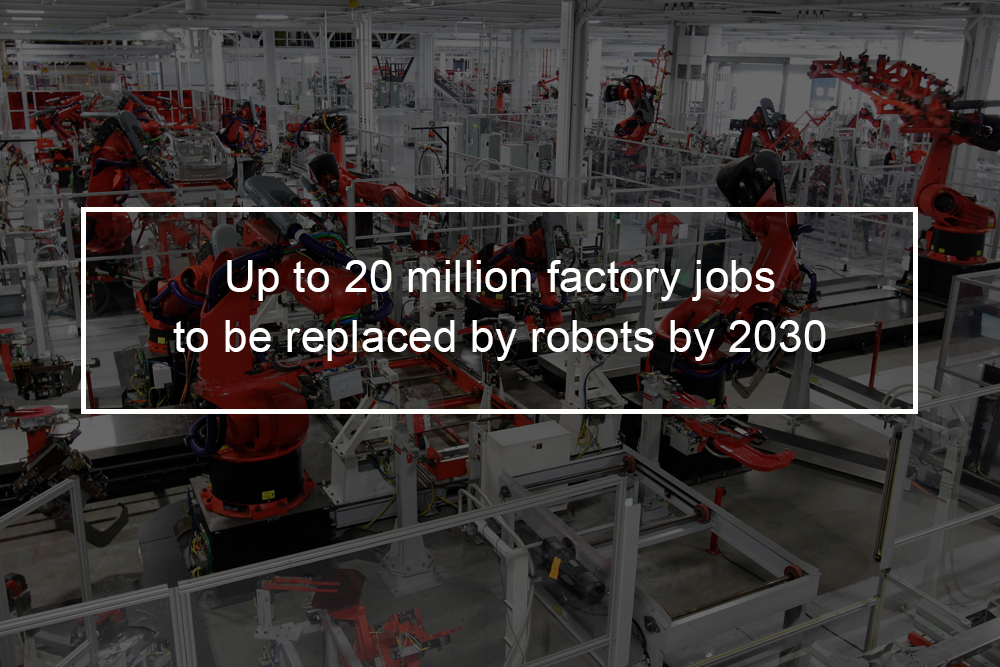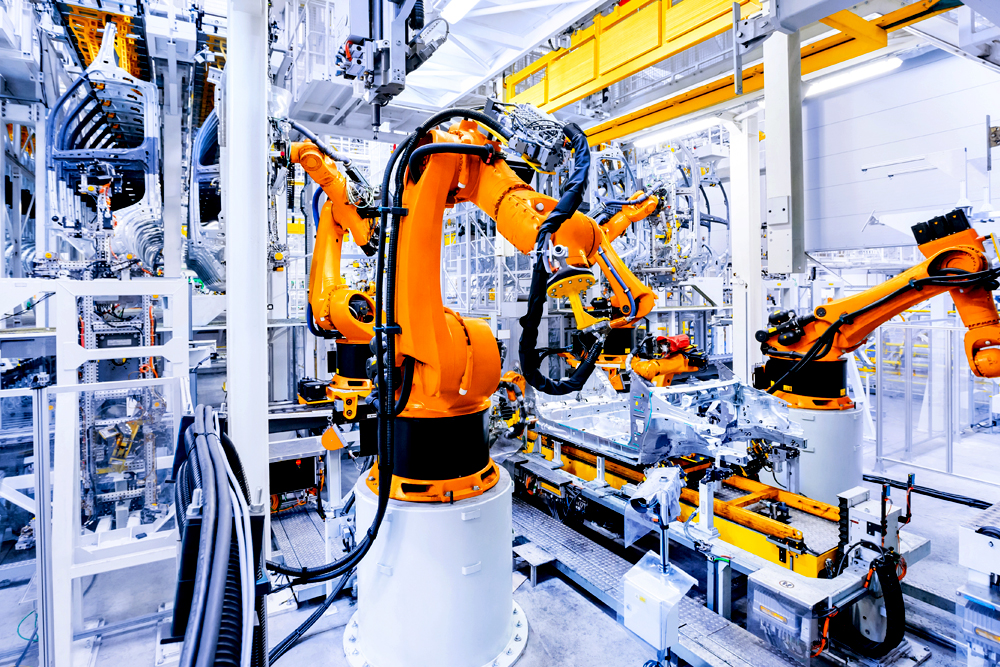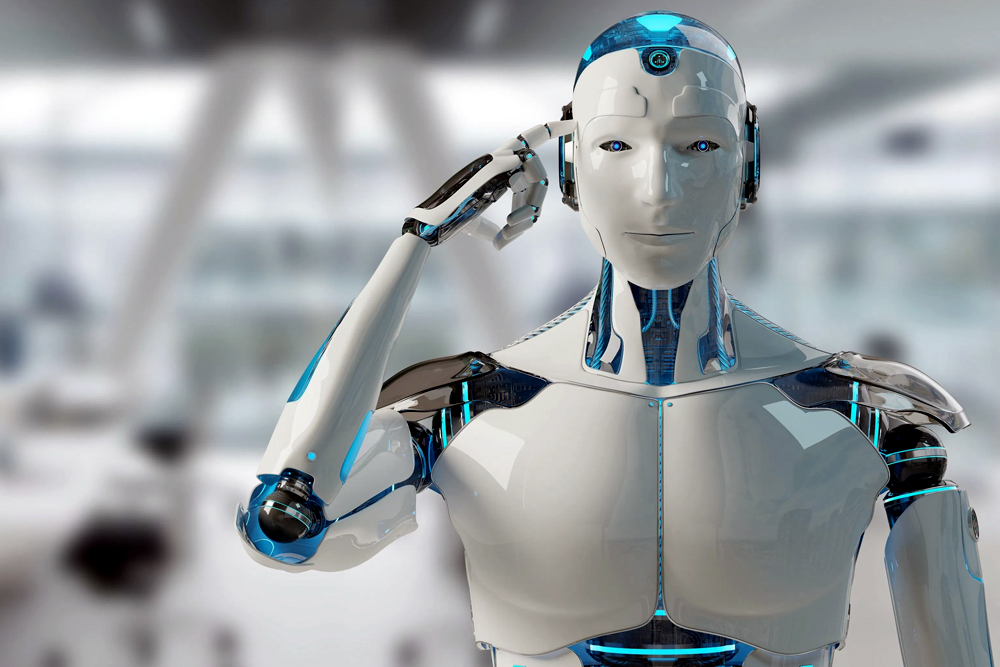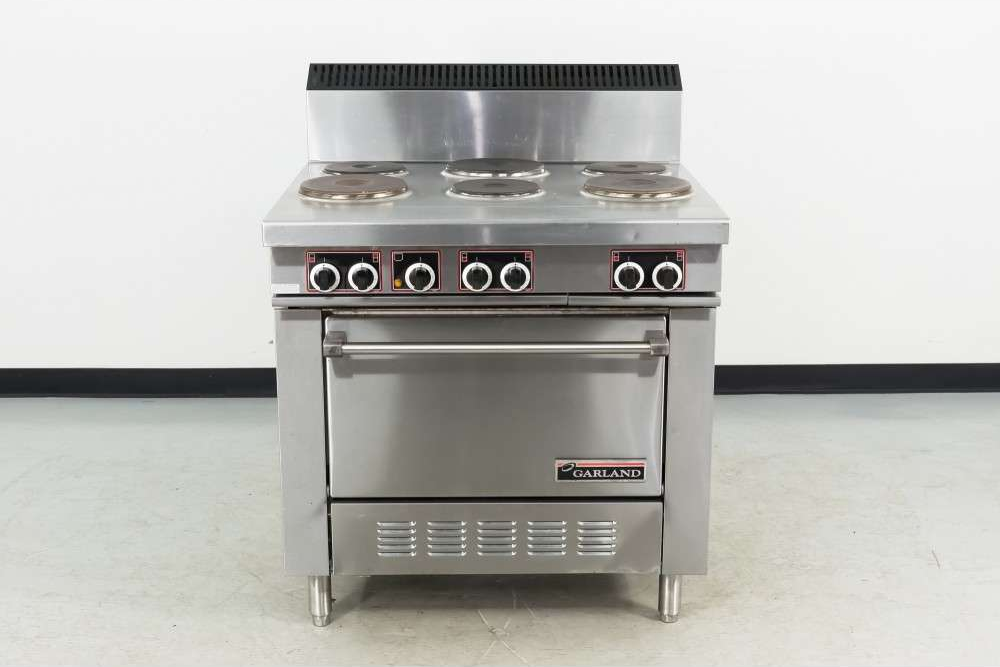Analysts predicted that by 2030, about 20 million manufacturing jobs would be done by robots, replacing the factory workers. Moreover, it is not only the manufacturing workers that will feel the pinch but also people in the service industry. Automation is, however, not all that bad. Automation will, in turn, cause economic growth and boost more jobs.
The rise of the robots
How robots and automation affects jobs?
Every new robot in the industrial process wipes out about 1.6 manufacturing jobs. The least-skilled workers are the ones that are most affected by this. When it comes to geographical locations, areas that have lower-skilled people as a majority also take the biggest hit. These areas usually have high unemployment rates and weaker economies to start with.
To add to the troubles, workers who are forced out of the manufacturing sector due to automation tend to get new jobs in construction, transport, office administration, and maintenance; these types of jobs are highly vulnerable to automation as well. Generally, every additional robot introduced in the lower-skilled bracket leads to about twice as many job losses as in the higher-skilled bracket. This fuels political polarization and economic inequality in the country. These predictions are nothing new. We have seen numerous analyses on how robots will put everyone out of work. But there is also a need to stress on the productivity benefits that will come from automation. That is, boosting growth, hence, creating as many opportunities as those lost.
Are service jobs under threat from robots?
It is clear that robots have taken over factories and the manufacturing industry. It is also becoming clear that automation is moving from the factories into the service industry. The service jobs that are under immediate threat are transport and construction works rather than the likes of law and journalism. And still, even in the service industry, it is the workers at the lower skill bracket that are most vulnerable. All said, it is still the workers in the manufacturing sector that will be impacted the most, especially in countries like China, where millions of workers could be replaced by robots. The trend is, the more repetitive a job is, the higher the risk of it being replaced by automation.
The jobs that call for more compassion, more creativity, and social intelligence are likely to continue being held by humans in the foreseeable future. The challenge for decision-makers is to find a way to encourage the creativity and innovation promised by the robots but, at the same time ensuring their rise does not cause a rift in society. Countries that suffer the most from automation in the manufacturing industry. About 2 million manufacturing jobs have been lost to robots since the year 2000. This includes about 500,000 in Europe and over 600,000 in China alone. China will be most impacted by automation. By 2030, the country is predicted to have about 14 million industrial robots. The UK will also be impacted by hundreds of thousands of jobs replaced by robots. Again, automation has its benefits. A 30% rise in robots would mean that $5 trillion in additional global GDP would be created. Therefore, globally, jobs will be created at the same rate as they are being destroyed.
Artificial intelligence taking over the job industry
Artificial Intelligence (AI) is where simple machines become so advanced that they are able to learn and perform more complex tasks like the human brain, or even better. In fact, artificial intelligence is performing a much better job than a human being in most aspects. In sales and marketing, for example, artificial intelligence can analyze sales calls faster than any sales manager could ever do. In fact, it would take about nine years for a sales call analysis to complete the same task a machine can do. And the nine years are nonstop, no sleep, no vacation. Artificial Intelligence is already being used for marketers’ content strategies, and soon it will take over. Artificial Intelligence is taking over the job industry, true. But it will, in turn, make work easier and, in return, increase productivity and effectiveness. In essence, jobs and workers will not be replaced, but the roles will be adjusted to come up with new careers.
Other jobs artificial intelligence are likely to replace
Top 10 service jobs that will be taken over by AI
It is established that manufacturing jobs are top of the list when it comes to robots taking over the process. This is because they are easily automated and involve a lot of routine or repetition. Bots can easily be configured to repeat a process rather than come up with new ways. However, with AI, even the service jobs are on high alert. Some are more in danger of being replaced than others. For example, sales and marketing jobs are at high risk. Here is the list; it is not exhaustive but gives you an idea.
Receptionists
Right now, automated phone and scheduling systems are quickly replacing the traditional receptionist roles. Modern technology companies or companies that are moving away from conventional office styles have particularly adopted more to automation in this field. They do not have multinational corporations or office-wide phone systems.
Telemarketers
By now, we all have received robocalls about various products and services. The telemarketing career space is predicted to decline by 3% come 2024 due to such automation. A contributing factor is that to be a successful telemarketer; you do not need high levels of social or emotional intelligence. Moreover, people do not really want to buy from a telemarketer. The conversion rate is about 10%. This makes it a prime opportunity for automation.
Proofreaders
A type of proofreading software is all around us. Most top organizations use them to check for spelling and grammar. They range from the simple Microsoft Word spelling and grammar check to the more elaborate ones like Grammarly and Hemingway App. All these technologies help writers in self-checking their work. Even then, the accuracy and intelligence of the software is not to the level of a professional proofreader, but it just shows the danger they are in.
Bookkeeping clerks
Most bookkeeping services are being automated. In fact, the industry is expected to decline by 8% come 2024. Services like Microsoft Office, QuickBooks, and FreshBooks already have software that basically does what a bookkeeping clerk does for a much cheaper rate. Hence, the high risk this profession is in.
Advertising salespeople
In the current media space, advertising is quickly shifting from television and print to social media and the web. People are moving away from buying advertising space on the mainstream media and managing them for marketers. Social media platforms are making it extremely easy for people to buy advertising space on their network and customize their ads, thereby getting rid of the salesperson. It is a cheaper alternative that still achieves brand awareness.
Compensation and benefit managers
This is a surprisingly growing industry at the moment. However, its nature makes it a perfect target for automation. Compensation and benefits managers have a system involving a lot of paperwork and analyzing the performance of each employee in the organizations. This comes with hurdles such as time-consuming and costly. Machines can automate the compensation process such that a large number of employees get served quickly and at a cheaper cost. This will render compensation and benefits managers obsolete.
Couriers and deliver people
This is the industry responsible for door to door delivery of food, mails, and other goods bought locally or abroad. Your local pizza delivery guy will soon be replaced by drones and robots that do the same function but much faster. The technology is not yet there, but in a few years, this will be adopted by every organization that delivers goods.
Computer and tech support specialists
The internet is home to a lot of content. Some of these content can run professionally like computer support specialists out of business. There are step-by-step instructions, video tutorials, and other hacks on the web that will tell you exactly what you need to do to solve your issues. So as an individual, your first instinct is not to call the specialist when your computer has a problem. Furthermore, companies are also automating their tech support system. That is when you ask a question on the website; it is a robot that answers you instead of a technician.
Market research analysts
The role of market research analysts in the development of content, messages, and products is very important. Or rather, it was very important. Automated AI uses available data to compile accurate analysis faster. Platforms such as GrowthBot can conduct market research on competitors and nearby businesses from the touch of a button.
Retail salespeople
When you visit a mall, furniture store, or even a car dealership today, you will realize there are fewer salespeople taking you through the process from start to finish. They are being replaced by machines. Now, the shopping experience is characterized by things like self-checkout. Plus, the average buyer is able to conduct an internet search on the product they want to buy and find out everything about it. The buyer would know more than what a salesperson may have said.












